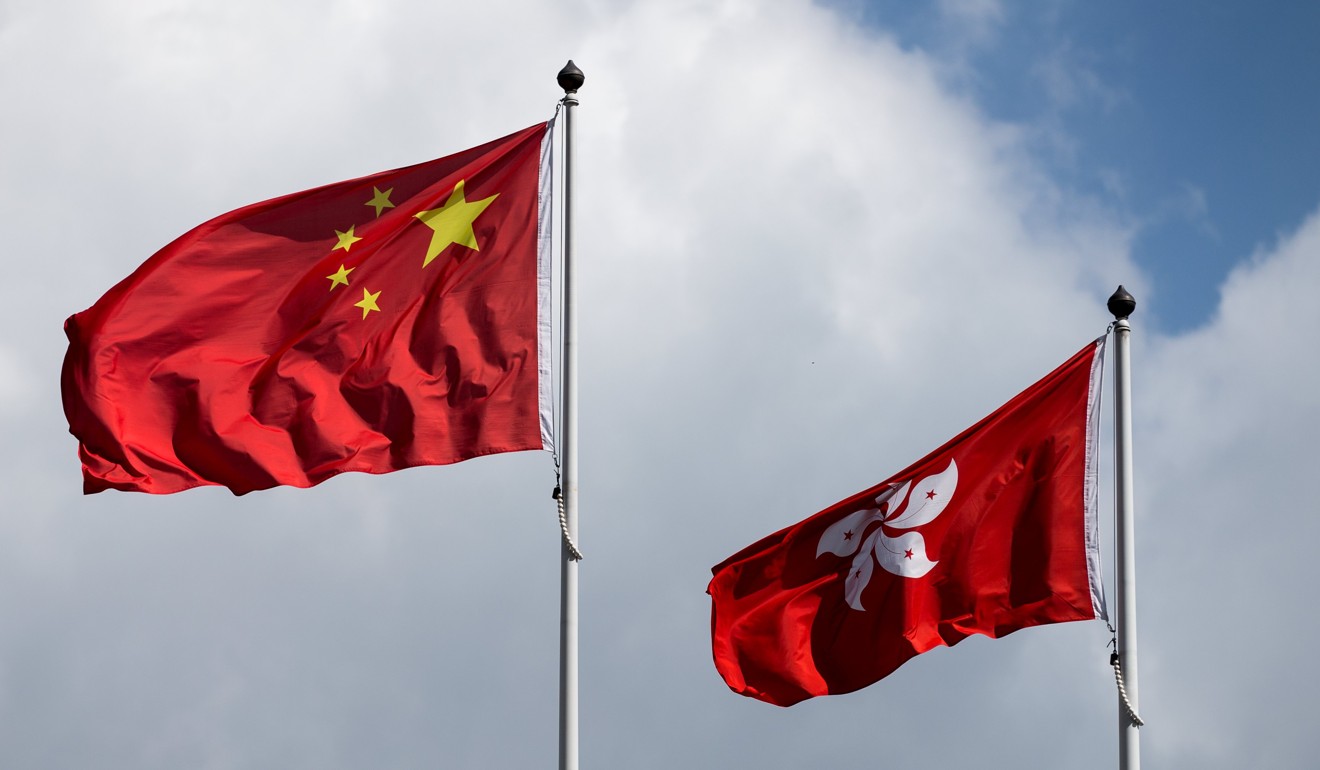
Young Hongkongers sceptical about city’s integration with mainland China, study finds
- About 52.6 per cent of respondents to survey said they did not agree with the idea of mainland-Hong Kong integration
- The legal and political systems were the two greatest concerns held by young Hongkongers when considering a move to the mainland
Hong Kong youngsters are divided over the city’s integration with the mainland, but many share a low sense of national identity and have concerns about the legal and political systems across the border, a study has found.
“Hardselling the idea of integration may cause a backfire,” said Ho Lok-sang, dean of the business faculty at Chu Hai College of Higher Education, on Tuesday.
“We hope mainland China can show more reforms and progress in its political system and social environment … and young people can have a more unbiased understanding [of the mainland] through more real life interactions with the people there.”

The college compiled its first index on Hong Kong youngsters’ acceptance of cross-border integration by polling 1,071 people aged between 15 and 24 in early August and by conducting focus group discussions with 29 youngsters in July.
About 52.6 per cent of the respondents said they did not agree with the idea of mainland-Hong Kong integration, 5.2 percentage points more than those who agreed.
When asked if they saw themselves as Chinese nationals, less than a quarter said they “highly agreed” while nearly 45 per cent said they “highly disagreed”.
I would rather earn less and maintain my freedom of travelling and using Facebook
And only 17.2 per cent of the respondents “highly agreed” that they were Greater Bay Area people, while 57.9 per cent said they “highly disagreed”.
When asked if they wanted to seek opportunities on the mainland, some 23.4 per cent were keen while 44.4 per cent were not, and between 45.2 and 48.8 per cent of the young people said they “highly disagreed” with the Hong Kong government’s work to incentivise local youth to work, study and start businesses across the border.
More than a third of those surveyed acknowledged the economic developments in mainland China, while 46.2 per cent and 50 per cent said the society and the legal system there were not improving, respectively.
The legal and political systems were also the two greatest concerns held by young Hongkongers when considering moving north, according to the survey.
In the three focus groups held among another 29 youngsters as part of the study, interviewees said they would identify themselves as Hongkongers as opposed to Chinese, as they recognised a different set of social institutions and values.
“We have different culture and language. I resent the mainland for the corruption there,” a university graduate was quoted in the report as saying.
“What is the difference between mainland China and Hong Kong? One simple answer is that you can’t use Facebook in mainland China but you can in Hong Kong.”
Hong Kong’s Chinese and Western influences must coexist if ‘one country, two systems’ is to work
“There are many fake foods on the mainland but the government there doesn’t conduct frequent sampling and examinations like the Hong Kong government,” a secondary school student said. “And you can get rid of troubles by using personal relationships and money on the mainland.”
Interviewees also said they would not sacrifice the freedoms they enjoyed in Hong Kong for potential economic profits on the mainland.
“My life would be hopeless if I could not stay in touch with my friends, even if I was offered a large amount of money,” another university graduate said.
“I would rather earn less and maintain my freedom of travelling and using Facebook,” a third university graduate said.
Ho from Chu Hai College said some deep impressions about the mainland might come from limited and biased knowledge, as more than 60 per cent of the respondents said they did not pay much attention to and did not have much understanding of mainland-Hong Kong integration.
Some of the participants in the focus groups admitted that exchanges with their mainland counterparts changed some of their perceptions.
High-speed rail saga exposes sorry state of anti-China paranoia in Hong Kong
“A major source of youngsters’ knowledge of the mainland is social media, on which the negative information may travel faster and farther,” Ho said. “And some of these impressions might be distant from the realities.”
May Chan Suk-mei, vice chairwoman of the Journalism Education Foundation, urged the local media to conduct unbiased and comprehensive reporting and the youth to make good use of the city’s multiple sources of reporting.
“We have media outlets across the political spectrum. I hope young people can read reports by a few more organisations when they have time,” Chan said.

